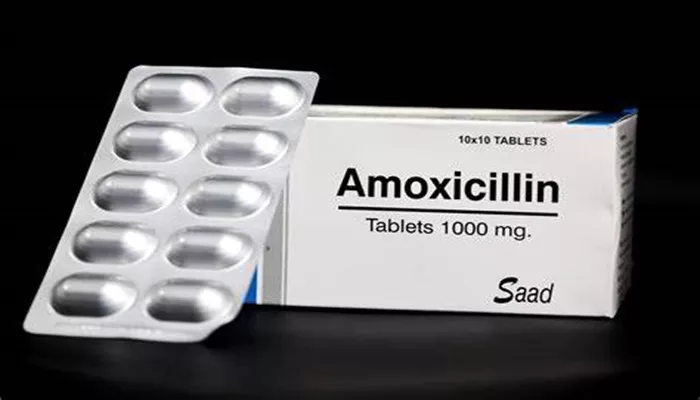Gum infections, also known as periodontal diseases, can lead to serious dental issues if not treated promptly. These infections occur when bacteria accumulate in the mouth, leading to inflammation and infection of the gums. Common symptoms include swollen gums, bleeding during brushing, and bad breath. If left untreated, gum infections can progress to more severe conditions, including tooth loss. Fortunately, several effective medications can help manage and treat gum infections. Below are five of the best medicines for gum infections.
1. Amoxicillin
Overview: Amoxicillin is a penicillin-type antibiotic that is commonly prescribed for bacterial infections, including those affecting the gums. It works by inhibiting the growth of bacteria.
Indications: This medication is effective in treating mild to moderate gum infections caused by susceptible bacteria.
Dosage: The typical dosage for adults is 500 mg every 8 hours or 875 mg every 12 hours, depending on the severity of the infection. It is important to complete the full course of antibiotics as prescribed by a healthcare professional.
Side Effects: Common side effects may include nausea, vomiting, diarrhea, and allergic reactions such as rash or itching.
Serious side effects are rare but can occur.
Considerations: Patients should inform their dentist of any allergies to penicillin or other antibiotics before starting treatment with Amoxicillin.
2. Clindamycin
Overview: Clindamycin is an antibiotic that is particularly effective against anaerobic bacteria, which are often involved in gum infections.
It is a suitable alternative for patients who are allergic to penicillin.
Indications: Clindamycin is used to treat serious gum infections that do not respond to other antibiotics.
Dosage: The usual dosage for adults is 150 mg every 6 hours or 300 mg every 8 hours for a duration determined by the severity of the infection.
Side Effects: Side effects may include gastrointestinal upset, diarrhea, and potential allergic reactions. Clindamycin has been associated with a risk of Clostridium difficile infection, which can cause severe diarrhea.
Considerations: Patients should be monitored for signs of gastrointestinal distress while on Clindamycin and should consult their healthcare provider if symptoms occur.
3. Metronidazole
Overview: Metronidazole is an antibiotic that is effective against anaerobic bacteria and certain parasites. It is often used in combination with other antibiotics to enhance treatment efficacy.
Indications: This medication is particularly useful for treating periodontal disease and acute necrotizing ulcerative gingivitis (ANUG).
Dosage: The common dosage for adults is 500 mg every 8 hours for 7 days. In some cases, a shorter course may be appropriate based on clinical response.
Side Effects: Possible side effects include nausea, a metallic taste in the mouth, dizziness, and headache. Rarely, it can cause more severe reactions like seizures or peripheral neuropathy.
Considerations: Alcohol consumption should be avoided during treatment and for at least 48 hours after completing Metronidazole due to the potential for severe reactions.
4. Doxycycline
Overview: Doxycycline is a tetracycline antibiotic that has anti-inflammatory properties in addition to its antibacterial effects. It is often used in periodontal therapy due to its ability to reduce inflammation and bacterial load.
Indications: Doxycycline is indicated for chronic periodontitis and other gum-related infections.
Dosage: The standard dosage for adults is typically 100 mg twice daily for the first day, followed by 100 mg once daily thereafter until the infection resolves.
Side Effects: Common side effects include gastrointestinal upset, sensitivity to sunlight (photosensitivity), and potential allergic reactions. Long-term use can lead to fungal infections due to disruption of normal flora.
Considerations: Patients should avoid taking Doxycycline with dairy products or antacids containing calcium or magnesium as these can interfere with absorption.
5. Chlorhexidine Gluconate
Overview: Chlorhexidine gluconate is an antiseptic mouthwash that helps reduce plaque formation and gingivitis. It works by killing bacteria in the mouth and preventing their growth.
Indications: This medication is often prescribed as an adjunctive treatment alongside antibiotics for managing gum disease.
Dosage: Patients typically use a 0.12% solution twice daily after brushing teeth. It should be swished around the mouth for about 30 seconds before spitting it out; it should not be rinsed with water afterward.
Side Effects: Side effects may include staining of teeth, altered taste sensation, and increased tartar buildup on teeth.
Considerations: Patients should follow their dentist’s instructions regarding usage duration and frequency to avoid adverse effects related to prolonged use.
Conclusion
Gum infections require prompt attention and treatment to prevent complications such as tooth loss and systemic health issues. The medications listed above are among the most effective treatments available for managing gum infections. Each medication has its indications, dosages, side effects, and considerations that patients must discuss with their dental care providers before starting treatment. Maintaining good oral hygiene practices alongside medication will also aid in recovery and prevent future infections.
Related topics:

